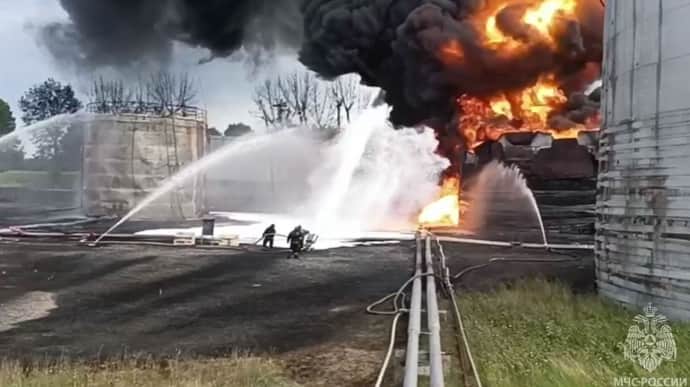Ukrainian drone attacks could force Russia to relocate aircraft and air defence systems away from front – WSJ

Ukraine has intensified its drone attacks on Russian military targets while its foreign partners are still refraining from allowing strikes deep into Russia with long-range weapons. This strategy may force Russia to relocate its aircraft and air defence systems further away from the front lines, according to The Wall Street Journal.
Source: WSJ
Details: Justin Bronk, a senior research fellow at the Royal United Services Institute in London who studies air power and technology noted that while drone strikes are hurting Russia, the damage so far is not strategically significant.
"However, the current rate of damage inflicted on air bases is something that the Russians cannot just accept long term as it would become a serious problem for the [air force] over time," he said.
It is reported that by attacking airbases deep within Russia, Ukraine may force Moscow to relocate its air defence systems further from the front lines, making targets closer to the front more vulnerable to Ukrainian strikes.
Bronk believes that drone strikes could also prompt Russia to move some of its fighter jets and attack aircraft to bases much farther from Ukraine. This, as he said, has reduced the number of glide bombs being launched, as Russian aircraft have to travel longer distances from their bases to the front.
The WSJ reiterated that Ukraine has previously downed Russian aircraft carrying glide bombs, but doing so required risking scarce air defence systems by moving them closer to the front.
Increasing the number and range of Ukrainian drone attacks is becoming an increasingly significant problem for Russia, according to Douglas Barrie, a senior fellow for military aerospace at the International Institute for Strategic Studies in London.
Barrie noted that while Ukrainian drones cannot replace long-range missiles that Kyiv wants to obtain permission to use, they compel Russia to rethink the placement of its aircraft and air defence systems.
"The effectiveness isn’t just in hitting the target—it has an effect even if it’s shot down," Barrie concluded.
Background:
- On the night of 21-22 August, the Security Service of Ukraine, together with Ukraine's Special Operations Forces, struck warehouses housing glide bombs and fuel at the Marinovka air base in Russia's Volgograd Oblast
- Defence Intelligence of Ukraine (DIU) and Ukraine’s Armed Forces struck the Kavkaz plant in Russia's Rostov Oblast, which stored petroleum products for the Russian army's military needs, on the night of 17-18 August.
- On 16 August, DIU conducted a special operation in Russia's Nizhny Novgorod Oblast, attacking the Savasleika air base with loitering munitions. According to an Ukrainska Pravda source, the attack destroyed a MІG-31 aircraft (either a K or I modification) and two Іl-76 cargo planes, and also damaged approximately five aircraft, most likely MІG-31K/Is.
Support UP or become our patron!






